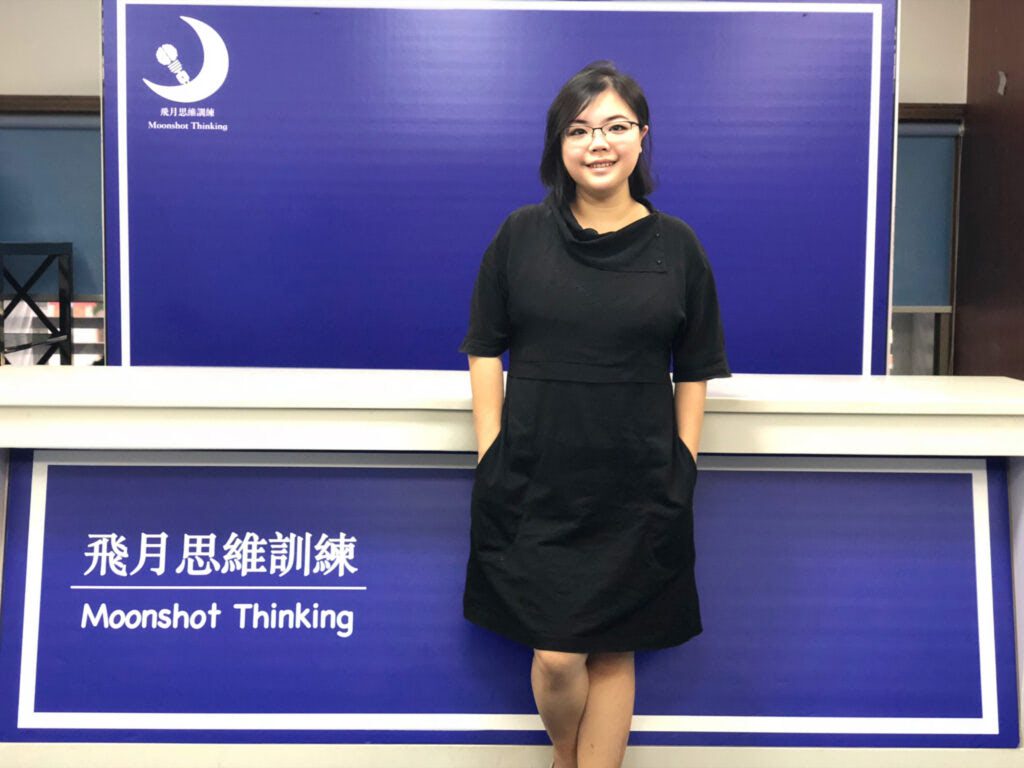Thinking Schools bring new approach to learning to exam-obsessed China

UK business exports problem-solving skills ‘habit of thinking’ in tie-up with Guandong-based British-educated entrepreneur
Announcement comes as a 15-page CV detailing the achievements of a five-year-old child included in an application to a Shanghai school highlights highly competitive nature of Chinese school system and importance accorded to passing exams.
Garmen (Jiawen Chen) Chan, Thinking Schools’ partner in China, spotted a growing appetite among parents for opportunities for their children to learn problem-solving skills in a freer, more discursive, environment.
Thinking Schools experts Thinking Matters have announced plans to bring Thinking Schools to China via a partnership with a British-educated Chinese educationalist and entrepreneur.
Chinese schools are typically characterised by rote learning and 10-hour school days, but Garmen (Jiawen Chen) Chan, Thinking Schools’ partner in China, spotted a growing appetite among parents for opportunities for their children to learn problem-solving skills in a freer, more discursive, environment. Ms Chan’s after-school thinking clubs for children aged six-13 in Shenzhen, Guangdong Province, have been running since 2016.
The announcement comes as a 15-page CV detailing the achievements of a five-year-old child included in an application to a Shanghai school highlights the highly competitive nature of the country’s school system and importance accorded to passing exams.
The venture with Thinking Matters, initially for a three-year period, will be separate from the after-school clubs, which run under the name Moonshot Thinking.
Ms Chan, 28, who attended sixth form in Cambridge and has a degree in information science and business from Loughborough University, believes that the time is right to bring Thinking School methods to Chinese schools.
‘The ability to think and problem-solve is very important when you get a job. I thought, “How can we help children acquire the habit of thinking?”, says Ms Chan, who worked as a risk analyst for banking giant HSBC in Shanghai after graduating.
The weekly topic-based after-school sessions cover social issues, news from papers, science, and any other topics that enabled the children to apply thinking skills.
‘Parents were saying, “Wow they [the children] are thinking and talking so much”.’
Guandong schools are already inviting Ms Chan and her 13-strong team into schools to run thinking courses and workshops.
‘It’s the thinking culture that we want to bring to Chinese schools. Chinese people are already aware of the need for thinking and problem solving; they are ready. But they need to find people who can make it happen for them and how to make sure the whole school will have the culture of thinking.’
Thinking Matters Director Richard Cummins said:
‘This is a fantastic opportunity to bring the Thinking Schools model to the heart of the Chinese education system. The Thinking School model is firmly rooted in evidence supporting the impact of metacognitive approaches. But it has to be a whole-school approach, not one adopted by some departments or a few teacher enthusiasts.
‘Thinking Schools also equip young people with the skills they need to succeed in the world of the robots and AI. They drive the type of unique thinking skills and intelligent learning behaviours that we all need in an increasingly technological world.’
Thinking Matters works with schools all over the UK and overseas to become Thinking Schools. In the UK, Thinking Schools are accredited by the University of Exeter.
While the first Thinking Schools are planned for Guangdong province, the ambitions are national. ‘The whole of China will be our aim,’ says Ms Chan.
Guangdong is China’s largest province by population, with over 100m citizens. It has over 10,000 primary schools and over 4,000 middle schools.
‘I believe that the foundation of a child being a life-long learner is to love questioning and thinking about the world. We also want to help them to build up correct and healthy values so that they feel fulfilled and positive in their lives.’
There are Thinking Schools developing all over the world, including Dubai, Lithuania, Norway, South Africa, New Zealand, Egypt, Nigeria and Thailand. Thinking Matters works with schools all over the UK and overseas which want to become Thinking Schools.










Responses